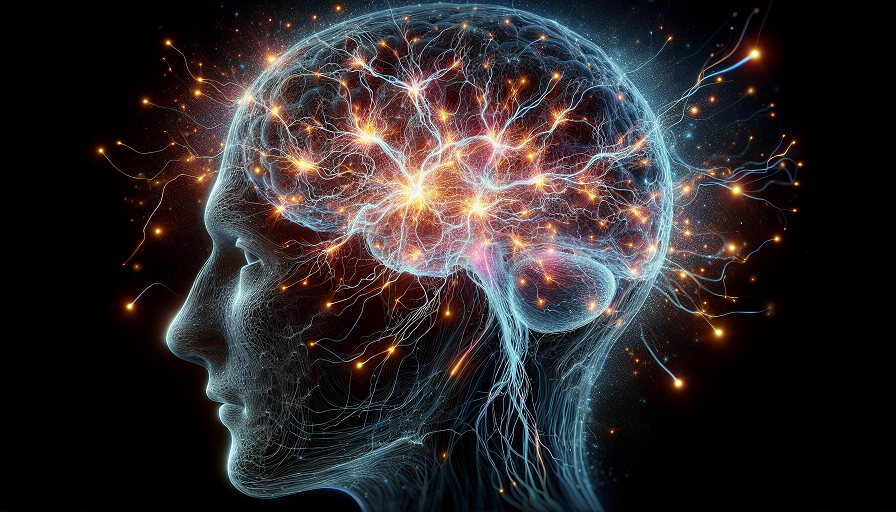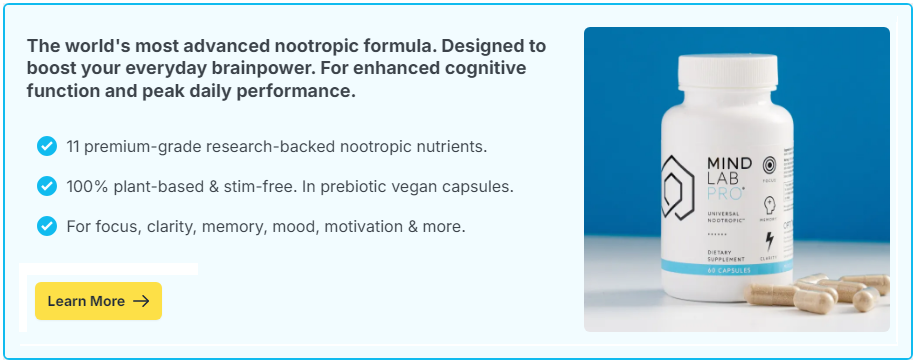
Have you ever wondered how certain substances can unlock the mysteries of your mind and enhance your creativity? Many people turn to cognitive enhancers in hopes of sparking innovative ideas or seeing problems from a new angle. Two popular types of cognitive enhancers are psychedelics and nootropics, each offering unique effects on the brain.
Contents
What Are Psychedelics?
Psychedelics are a group of substances that alter perception, mood, and various cognitive processes. Some of the most well-known psychedelics include LSD (lysergic acid diethylamide), psilocybin (found in “magic mushrooms”), and DMT (dimethyltryptamine). These substances have been used for centuries in various cultural and spiritual rituals, often with the intent to expand consciousness and explore new realms of thought.
How Psychedelics Work
Psychedelics mainly affect the brain by interacting with serotonin, a neurotransmitter that helps regulate mood, perception, and cognition. When psychedelics bind to certain serotonin receptors, especially the 5-HT2A receptor, they can alter the way the brain processes information. This often leads to vivid visual experiences, altered sense of time, and a feeling of interconnectedness with the world.
The impact on creativity can be profound. By disrupting the normal patterns of thought, psychedelics can encourage out-of-the-box thinking and the formation of new ideas. Many users report feeling as if their brains are making novel connections between previously unrelated concepts. This can be particularly beneficial for artists, writers, and anyone seeking to break free from creative blocks.
What Are Nootropics?
Unlike psychedelics, nootropics, often called “smart drugs,” are substances that aim to enhance cognitive function without significant alteration of perception. These cognitive enhancers include a variety of compounds, from natural herbs and vitamins to synthetic drugs. Some popular nootropics are caffeine, L-theanine, racetams, and ginkgo biloba.
How Nootropics Work
Nootropics work by supporting and enhancing various brain processes. Some nootropics improve blood flow to the brain, others enhance energy production, and some increase the availability of neurotransmitters that aid in concentration, memory, and alertness. For example, caffeine is known to block adenosine receptors, leading to increased alertness and reduced perception of fatigue.
When it comes to creativity, nootropics can be helpful by providing a clear and focused mind. Unlike psychedelics that might take you on a whirlwind of ideas, nootropics often help by providing a calm and sustained mental energy, allowing you to dive deep into a creative project with more attention and persistence.
Impact on Creativity and Brain Function
While brain supplements may not produce the profound shifts in perception or immediate boosts in creativity attributed to psychedelics, they offer a steady platform for mental enhancement. For instance, omega-3 fatty acids are known to support long-term brain health and may reduce symptoms of anxiety and depression, creating an optimal mental state for creative thinking and problem-solving.
The herbal components in these supplements, like bacopa monnieri, are traditionally used to improve memory and cognitive function, making them beneficial for individuals looking to sustain creative and productive efforts over long periods. When the brain operates efficiently, whether through improved blood flow or enhanced neurotransmitter activity, the potential for innovative thinking and elegant solutions to problems can increase.
Choosing the Right Cognitive Enhancer
Deciding which cognitive enhancer to incorporate into your routine depends on your specific needs and lifestyle. If you’re seeking a major shift in perception and creativity with potentials for self-discovery, psychedelics may offer profound experiences, albeit with careful consideration of the risks and legality. If enhanced focus and productivity in your everyday tasks are your goals, nootropics might serve you better. Brain supplements, on the other hand, can provide a balanced approach, promoting long-term brain health alongside incremental cognitive improvements.
Comparing the Effects on Creativity
While both psychedelics and nootropics can enhance creativity, they do so in different ways. Here’s a closer look at their effects:
- Mind Expansion vs. Focus: Psychedelics tend to expand the mind, allowing for novel experiences and perceptions. Nootropics, on the other hand, are more about enhancing focus and clarity, which can be particularly useful during the execution phase of a creative project.
- Short-term vs. Long-term Effects: Psychedelics are often used for short-term creative boosts or moments of insight, while nootropics can be part of a long-term strategy for cognitive enhancement, helping to maintain a high level of creativity over time.
- Risk vs. Safety: Psychedelics can come with risks such as intense trips and psychological effects, while nootropics are generally considered safer with fewer side effects when used responsibly.
Real-World Applications
Many artists, writers, and innovators have credited psychedelics with inspiring their groundbreaking work. Steve Jobs famously referred to his experiences with LSD as “one of the two or three most important things” he had done in his life. The ability of psychedelics to rewire thinking patterns and elevate consciousness is often seen as a powerful tool for artistic expression and innovation.
On the other side, nootropics are preferred by professionals and students who need sustained mental performance without the drastic shifts in perception. A writer might use nootropics to maintain focus through long hours of creative writing, while a programmer could use them to solve complex coding challenges.
Considerations for Use
If you’re curious about using psychedelics or nootropics to boost your creativity, keep these considerations in mind:
- Legal Status: Many psychedelics are illegal in most parts of the world and using them can have legal consequences. Nootropics are generally legal, but it’s important to check the regulations in your area.
- Research and Guidance: Extensive research is vital before trying any new substance. Consulting with professionals, such as a healthcare provider or a therapist familiar with these substances, can help guide safe and effective use.
- Psychological State: Both psychedelics and nootropics can have different effects depending on your mental state and environment. Ensuring that you are in a supportive and safe setting is crucial, especially with psychedelics.
Ultimately, whether you choose psychedelics or nootropics, understanding their effects and using them responsibly can open doors to enhanced creativity and cognitive function. As new research continues to unfold, we are likely to gain even deeper insights into these fascinating substances and their potentials.

